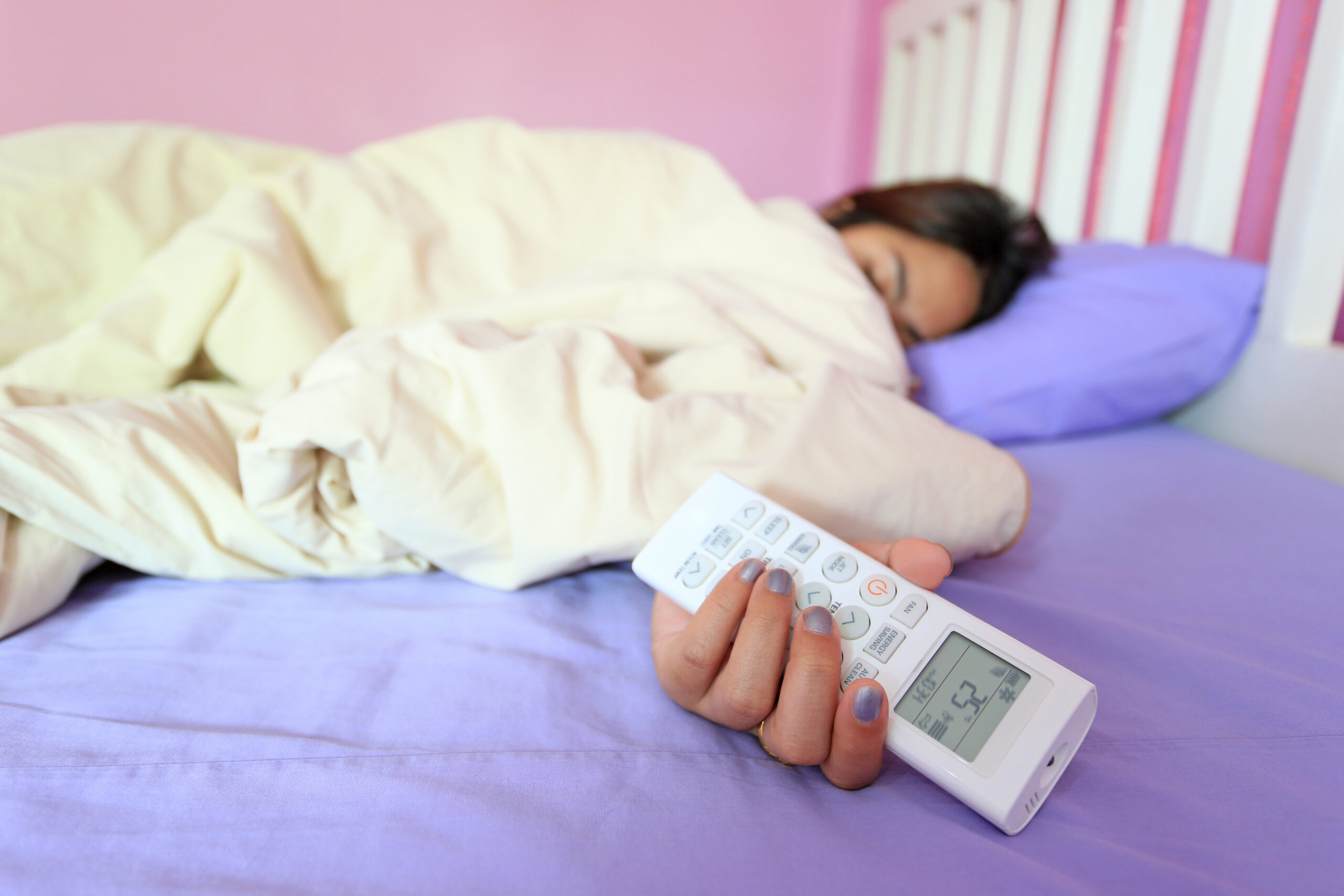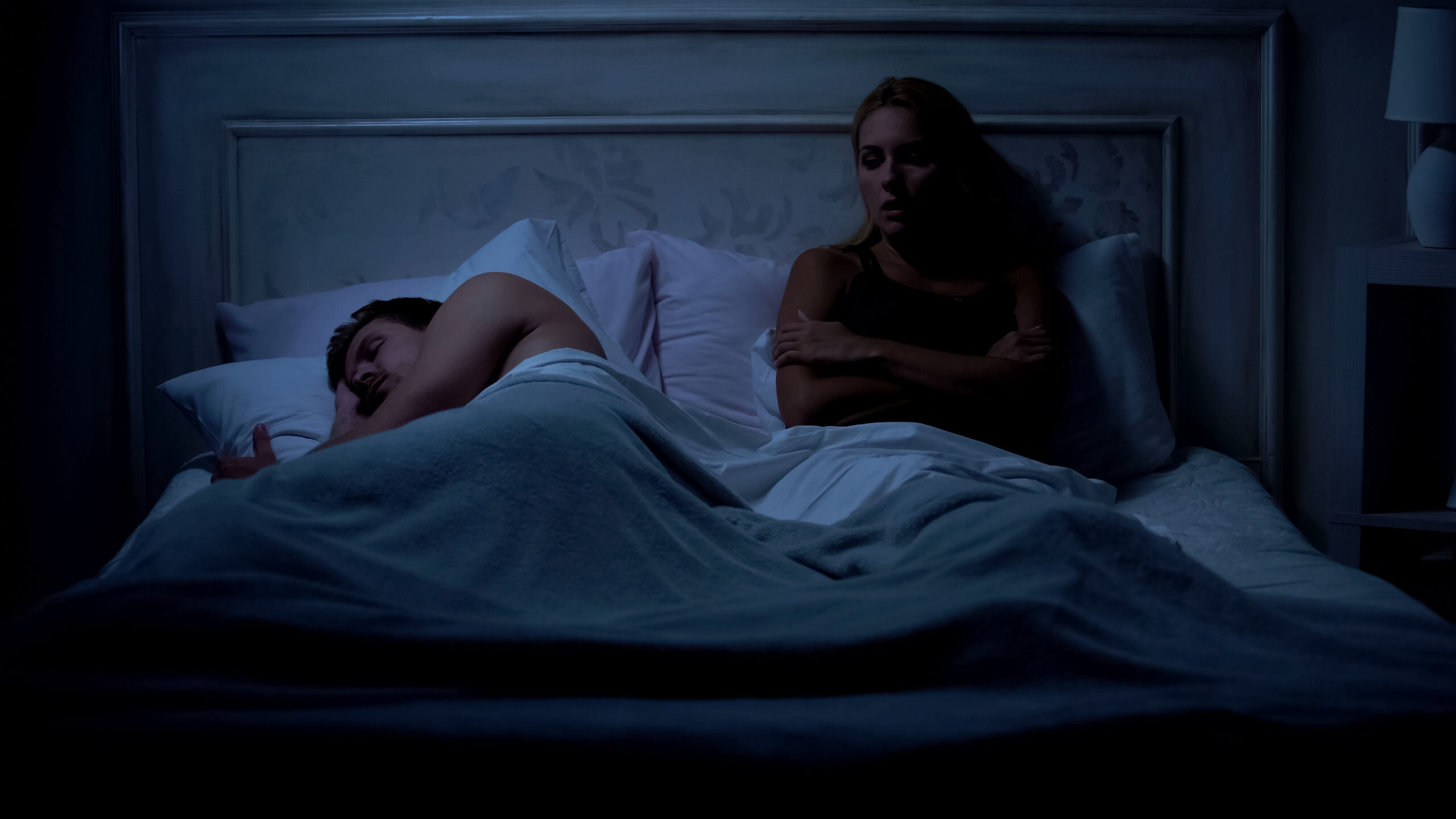Boiling Point
An ideal AC temperature for sleep? Science says yes . . . and no.
As high temperatures make headlines across most of Japan, our homes are warming, too — to the point that some people’s bedrooms remain unbearably hot deep into the night and causing them to lose sleep.
Indeed, almost every night for the past few weeks has been a nettaiya (tropical night), which the Meteorological Agency defines as a night with temperatures that don’t fall below 25 degrees Celsius (77 degrees Fahrenheit). Add to those balmy temps the solar radiation absorbed by your home throughout the day, which is released at night, and you may have no choice but to turn the air conditioning on when you hit the hay.
But this begs the question: Should you go easy on the AC to save money, or crank it for maximum comfort? At the end of the day, is there an ideal temperature for your room when you sleep?
Sleep has a lot to do with the way our body temperature is regulated. According to the health ministry’s sleep guide, one requirement for slumber is that the body’s internal temperature be dissipated to the outside by increased blood flow to the skin of the limbs. As the core temperature of your internal organs begins to decrease, it becomes easier to fall asleep.
Creating an environment that facilitates such body temperature changes is key to ensuring a good night's sleep, the guide says, noting that taking a temperate bath one or two hours before going to bed can facilitate this cooling process.
While the ministry’s guide does not cite a specific temperature range for summertime sleep, Kazuyo Tsuzuki, a professor of environmental engineering and sleep expert at Kansai University in Osaka Prefecture, says the best room temperature to induce sleep is somewhere between 25 C and 28 C. She has studied optimal sleeping environments for more than 25 years.
In one Chinese study, which Tsuzuki participated in as a co-author, 18 healthy university students aged 20 to 25 were asked to sleep in different rooms with an air temperature of 23 C, 26 C or 30 C. They wore devices to measure brain activity during their sleep and answered questionnaires on how rested they felt afterward.

Researchers found that study participants in the 23 C and 30 C rooms took longer to fall asleep, had less deep sleep and reported poor sleep quality. Researchers thus concluded that 26 C was close to ideal.
That’s a tad lower than 28 C, which the Environment Ministry cites as the ideal indoor temperature to avoid heatstroke and stay comfortable in the summer. (Keep in mind that these temperature ranges are for your room, not your AC settings.)
Tsuzuki explains our body needs a cooler environment at night than during the day because our metabolic rate declines by about 30% while we are asleep. Another important factor that affects sleep quality is humidity. Tsuzuki says the humidity level to achieve the best night’s slumber is around 50%.
Quarrels over AC use among couples sharing the same bedrooms are all too familiar. A 2016 online survey of nearly 1,000 people by Tokyo-based distribution information provider Planet found partners who lived together often fought over the AC temperature, with many citing a gap of 2 or 3 degrees as the issue.
Tsuzuki says many men prefer cooler temperatures as they tend to have bigger builds and more muscle mass, which lead to higher metabolic rates and body temperatures — and thus they are more likely to feel hotter.
Differences in metabolic rates also explains why older people, whose metabolism is slower than younger people, prefer warmer rooms at night.
While many people set a timer so their AC switches off automatically soon after they fall asleep, Tsuzuki recommends that you keep your room cool for at least the first half of your sleep, though she understands why many people want to keep AC usage to a minimum — for the planet and their purse.

“I have data covering people who slept for seven hours at night and comparing their sleep efficiency between those who kept the AC on to keep their room cool for 3.5 hours and those who turned it off after 1.5 hours,” she says. “The group who cooled only for 1.5 hours had their skin and core body temperature rise, had difficulty staying asleep and were shown to sweat more.”
What about cultural differences? A 2023 study involving older adults in Boston found the optimal sleeping temperature was 20 C to 25 C, and other experts abroad suggest even lower temperatures. Tsuzuki stands by her research, however, saying differences often come from the use of bedding in sleeping tests, and seasons play a role, too, with ideal ambient temperatures tending to get lower in the winter as people use thick blankets to keep warm.
Does she have any advice for those couples whose relationship is on the rocks due to gaps in temperature sensitivity?
“Many simply keep their rooms separate,” she says, adding that some try to find the middle ground by having the person who feels cold wear warmer sleepwear. Adjusting the direction of your bed or futon, so the person feeling cold will not get wind directly from the AC, may also help.
Perhaps most importantly, understanding how everyone’s comfort zone is different can help snuff out endless feuds.
“(Despite conclusions driven by sleep research), there are people who have told me their best temperature is 23 degrees, for example,” she says. “There are definitely individual differences.”

